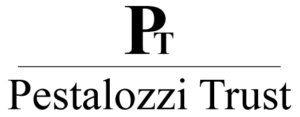SUBMISSION ON THE OCTOBER 2016 “CRL RIGHTS COMMISSIONS REPORT OF THE
HEARINGS ON COMMERCIALISATION OF RELIGION AND ABUSE OF PEOPLE’S BELIEF
SYSTEMS”
SUBMITTED BY: THE PESTALOZZI TRUST, 23 FEBRUARY 2017
Introduction
The Pestalozzi Trust is a registered public benefit organisation and has made it possible for parents to choose home education with assurance and confidence and in the best interests of their children since 1998. The Trust does this by preventing and solving conflict between their members and education and welfare departments and other state authorities, and by defending member families in court if conflict cannot be settled outside the courts. The trust also helps to create a safer regulatory environment by interfacing with government and the media.
Since 2010, the Pestalozzi Trust has created an additional membership category for civil educational institutions that includes independent or private schools, in order to protect the constitutional rights of these centres.
The CRL Rights Commissions Report of October 2016 contains two ambiguous references which may be interpreted to refer to home education. Regardless of the intended meaning of these statements, we object to these statements because they can be interpreted as undermining the rights of parents to decide how best to educate their children.
Extremism and fundamentalism
The following statement is included in a list of substantive issues in the report on page 19:
“viii. Subjecting members to control by extremists/fundamentalists such as forbidding children to attend school… “
Reasons for objection
The words ‘…forbidding children to attend school’ can be interpreted as ‘home education’ or ‘small school’ education. If this is not what is meant, then this statement should be specifically rephrased.
We object to ‘home education’ and ‘small school education’ being categorised as ‘control by extremists/fundamentalists’. Such a negative labelling can be used to encourage state interference in children’s rights and can be used to prevent children from receiving an education that is in their best interests.
The 2011 census indicated 57,000 persons aged 5-24 receiving home-based education. Assuming a conservative growth of 10% per annum, there could already be more than 100 000 home learners in South Africa. Home education is a lawful parental choice, recognised by the Constitution and the SA Schools Act. Home education is the fastest growing mode of education in South Africa and is increasingly becoming a mainstream choice.
The reasons for home education are varied. Some parents choose home education for religious reasons, others not. However, the statement in the CRL report labels all parents who choose home and small school education, including those who choose this kind of education for reasons totally unrelated to religion, as ‘extremists/fundamentalists’.
Given the inability of the state to place tens of thousands of children in schools in 2017, home and small school education is the only choice available to many parents. The statement in the CRL report will however label parents who choose home and small school education as a result of the state’s inability to place their children in public schools, as ‘extremists/fundamentalists’.
‘Religious extremism’ is a term which is often used to describe religious organisations that encourage terrorism. The implication of this report is that home and small school education may constitute ‘extremism’, and this fact is likely to encourage state officials to treat home educating families as a threat.
In this context, we thus register serious objection to parents who choose ‘home education’ and ‘small school education’ being labelled as ‘religious extremists/fundamentalists’, because this may lead to a situation where parents who make lawful educational choices in the best interests of their children are categorised as ‘extremists/fundamentalists’ and are treated like organisations that encourage terrorism.
Human Right Abuses
Under Recommendations the report states on page 18:
“15.2 The Constitution leaves scope for all kinds of beliefs and opinions. Even views that some may regard as extreme are allowed and should not be regulated. However, when views lead to the abuse of human rights (for example, hate speech as indicated in article 16(2)), or to the violation of the law, there is cause for concern. For example, it is a matter of concern when religious freedom is taken to the level where children are prevented from attending school, as it is a violation of the Constitution and existing law.”
Reasons for objection
The Bill of Rights states the right to basic education in clause “29. (1) Everyone has the right— (a) to a basic education…”, and according to UDHR, Art 26, 1 “Everyone has the right to education” (UDHR, Art. 26, 1). Respect for freedom of education requires that the state may not prefer a particular educational method or approach, including compulsory attendance at a governmentoperated institution. One should therefore distinguish between compulsory education and compulsory schooling.
According to the World Declaration on Education for All, Art. 4: “The focus of basic education must, therefore, be on actual learning acquisition and outcome, rather than exclusively upon enrolment, continued participation in organized programs and completion of certification requirements.”
Because many public schools are not able to provide education anymore, many parents decide to take their children out of public schools in order to provide them with a superior education through home education. The recommendation of the CRL implies that it is an abuse of human rights to take children out of public schools in order to provide a superior education. This means that the CRL views it as a human right abuse if parents take the necessary actions to ensure that their children’s right to education is realised.
Summary
The Pestalozzi Trust objects to the statements that classify home education as ‘extremism / fundamentalism’ and ‘human rights abuses’. We request that these statements be rephrased in such a manner that there is no room for associating home education with ‘extremism/fundamentalism’ and ‘human rights abuses’.
Yours faithfully

Bouwe van der Eems (Chairman)

